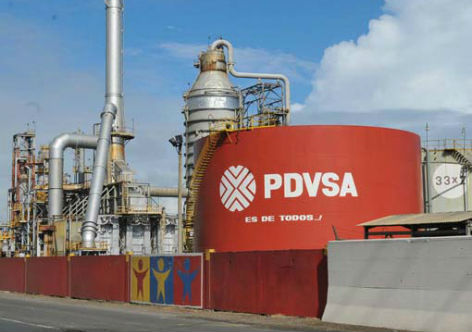
The growing conflict between Israel and Iran begins to generate significant concerns in energy markets, especially regarding oil prices.
Analysts warn that, in a regional climbing scenario, the price of oil could reach historical levels, with projections of $ 300 ($ 1,648) per barrel.
The main threat would be a possible interruption on supply routes, especially in Ormuz Strait, a strategic point where about 20% of world oil travels.
According to experts heard by Sputnik, US direct involvement in the conflict, either through military support to Israel or secret interventions in Iran, would be seen by Tehran as an existential threat.
This could lead Iran to adopt one of their most impactful strategies: the closure of the Ormuz Strait. If this happens, the impact on oil prices would be immediate and devastating.
War scenario and impact on the global market
Roberto González Cárdas, a national security expert, explained that Iran has the ability to stop between 20% and 30% of global oil supply in a short time.
“The implementation of Minas Naval, Road Missile Batteries and Shahed-136 drone swarms could interrupt this volume in just 72 hours, raising sight prices to over $ 200 [R$ 1.098] The barrel, ”said the expert. He stressed that the measure would be a tactical response to a military climb that compromised Iran’s security and sovereignty.
If the conflict spreads to other production fields in the Middle East, such as Saudi Arabia or the United Arab Emirates, prices could exceed $ 315 per barrel.
This increase would represent prolonged pressure on the organization’s ability to respond from the organization’s countries for Economic Cooperation and Development (OECD), affecting the global economy in a scenario of oil scarcity.
Venezuela and the impact on the energy scenario
In the midst of this complex energy situation, Venezuela becomes a possible relevant actor. The country has some of the largest oil reserves in the world and a strategic location, which would allow it to capitalize on the increase in oil price.
However, expert González Cárdenas warns that reality is not so simple. State PDVSA faces serious technical, financial and political limitations due to more than a decade of international sanctions and coercive measures.
With the current production of Venezuela ranging from 800,000 to one million barrels a day – well below the installed capacity of 3.5 million barrels – the recovery of the country’s oil sector seems unlikely in the short term. Although the collection can improve the balance of payments and relieve currency tensions, the lack of investments in the sector and the deterioration of the infrastructure increase the inflationary risk.
The US-venezuela relationship and the potential for reactivation
Faced with the escalation between Iran and Israel and a global energy crisis, US foreign policy towards Venezuela can be reviewed.
The geographical proximity of the country and the quality of its gross oil make Venezuela a strategic option for the US, especially with increasing pressure in the US energy sector.
The possibility of conditional relief from sanctions could open limited oil marketing channels, although without formal recognition of the Venezuelan government.
González Cárdenas suggests that climbing in the Persian Gulf and the world energy crisis may force the US to reconsider its posture in relation to Venezuela. However, he emphasizes that, without the withdrawal of sanctions and the urgent investment in the sector, the country will not be able to take advantage of a possible energy boom.
“We are facing a window of strategic but highly contingent. If the financial block is not raised and the investments are not made, Venezuela will not be able to take advantage of this situation,” concludes the expert.
The future of the global energy market
The impact of the conflict between Iran and Israel on the global oil market can redefine economic dynamics, especially if Iran takes drastic measures such as the closure of the Ormuz Strait.
Venezuela, in turn, may have a unique opportunity to recover its oil sector, but this will depend on the evolution of international political relations and significant investments in the sector. The global energy crisis resulting from this conflict can reshape oil supply chains, directly affecting prices and global economic stability.
Source: https://www.ocafezinho.com/2025/06/18/saiba-como-a-venezuela-equilibra-possivel-disparada-no-preco-do-petroleo-diante-da-guerra-israel-ira/

